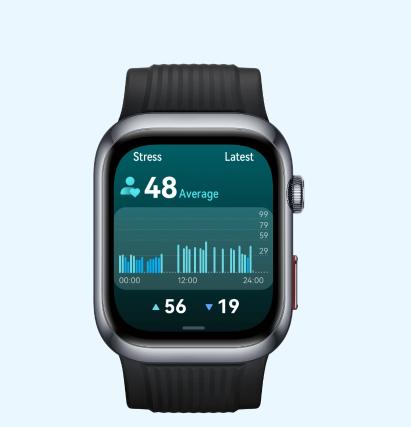Stress is a common part of daily life, affecting people in various ways. Everyone experiences stress, but not everyone knows how it can impact their health, particularly blood pressure. While it’s well-known that stress can increase blood pressure, the relationship between stress and low blood pressure is less commonly discussed. This article delves into what causes for low blood pressure and explores the factors and mechanisms behind this connection.

What is Low Blood Pressure?
Low blood pressure, or hypotension, occurs when blood pressure readings are lower than the normal range. Blood pressure is measured in millimeters of mercury (mmHg) and recorded as two numbers – systolic pressure (the top number) and diastolic pressure (the bottom number). Hypotension is usually defined as blood pressure readings lower than 90 mmHg systolic or 60 mmHg diastolic.
Hypotension can cause a range of symptoms from mild to severe. Common symptoms include dizziness, fainting, blurred vision, nausea, fatigue, and lack of concentration. In severe cases, it can be life-threatening, leading to shock. However, some individuals naturally have low blood pressure without adverse symptoms and may be healthy.
How Stress Affects Your Blood Pressure
Stress influences the body in numerous ways, including its impact on blood pressure. When an individual experiences stress, the body releases hormones like adrenaline and cortisol. These hormones prepare the body for a “fight or flight” response by increasing heart rate and constricting blood vessels, which typically raises blood pressure. However, in some cases, especially after acute stress, the body’s response may cause blood pressure to drop.
Acute vs. Chronic Stress: Different Impacts on Blood Pressure
Acute stress is short-term and typically resolves quickly. It can cause temporary spikes in blood pressure due to the body’s immediate response. Once the stressful event is over, blood pressure usually returns to normal. However, in some people, the relief of acute stress can lead to a sudden drop in blood pressure.
Chronic stress, on the other hand, involves prolonged exposure to stressors. Over time, chronic stress can lead to various health problems, including persistent high blood pressure. However, it’s less commonly associated with chronic hypotension. Still, the constant strain on the cardiovascular system may, in some individuals, lead to periods of low blood pressure, especially when combined with other factors like dehydration or lack of nutrients.
Factors That Influence the Relationship Between Stress and Low Blood Pressure
Various factors can modulate how stress affects blood pressure. These factors can make the relationship between stress and low blood pressure more pronounced in some individuals.
Stress Triggers and Their Role in Blood Pressure Fluctuations
The nature and intensity of stress triggers play a significant role in blood pressure fluctuations. Exams, job interviews, and significant life changes can cause considerable acute stress, leading to notable changes in blood pressure. In some cases, the body’s response to stress may involve relaxation of blood vessels post-stressor, causing a drop in blood pressure.

The Impact of Stress on Heart Health and Circulation
Chronic stress impacts heart health negatively by causing wear and tear on the cardiovascular system. It can lead to arterial stiffness, atherosclerosis, and other cardiovascular diseases. Moreover, stress can impair the autonomic nervous system’s ability to regulate blood pressure efficiently. This dysfunction can make the heart and blood vessels less responsive to fluctuations, leading to episodes of low blood pressure, especially when transitioning from high-stress states to relaxation.
Managing Stress to Prevent Blood Pressure Issues
Effectively managing stress is crucial for maintaining healthy blood pressure levels. Techniques such as meditation, deep breathing exercises, regular physical activity, and a balanced diet can mitigate the impact of stress. Utilizing tools like the HUAWEI WATCH D2 can help monitor blood pressure and stress levels in real-time, providing valuable insights and allowing for timely interventions to maintain optimal health.
Conclusion
Understanding the nuanced relationship between stress and low blood pressure is vital for managing overall health. While stress commonly raises blood pressure, it can also lead to periods of hypotension in some individuals. Recognizing and addressing stress triggers and maintaining heart health through effective stress management strategies can prevent blood pressure issues. Tools like the HUAWEI WATCH D2 offer advanced monitoring capabilities, aiding in proactive health management. This insightful exploration underscores the importance of balanced stress levels in maintaining not just mental peace but also cardiovascular health. Through keen awareness and suitable interventions, maintaining healthy blood pressure becomes more achievable.






Leave a Reply